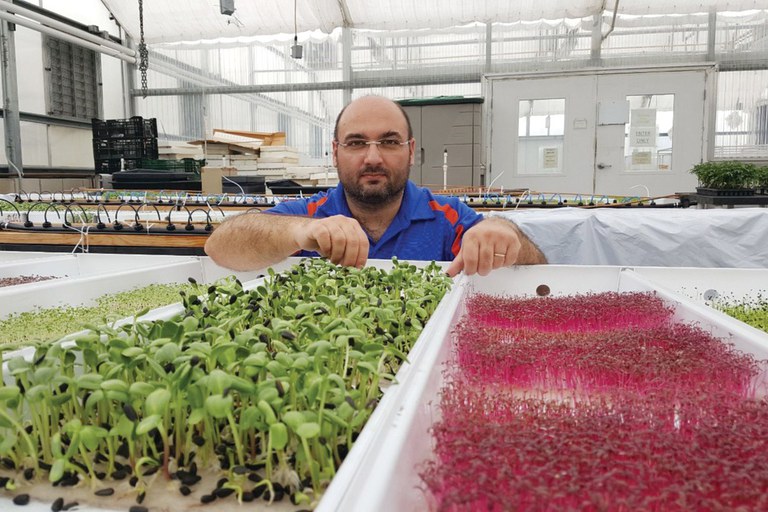Posted: April 3, 2024
Select microgreens in custom diet may help deliver desired nutrients
A diet including a carefully selected assortment of microgreens may help address an individual's nutritional deficiencies, according to a Penn State researcher who led an international team that evaluated the mineral content in young specimens of many different plant species.
"Under controlled environmental conditions, we grew 17 species of microgreens — which are simply the young seedlings of edible plants — belonging to seven different botanical families, and we analyzed those for their yield performance," said Francesco Di Gioia (below), assistant professor of vegetable crop science and lead author on the study. "We determined their nitrate content and the mineral profile, considering both macronutrients and micronutrients, for each species."
In this research, published in Frontiers in Plant Science, Di Gioia and his collaborators at the U.S. Horticultural Research Laboratory examined the mineral content of the microgreens, with an eye toward determining whether microgreens could be used to enrich the diets of people who need high levels of certain minerals to address health concerns.
Di Gioia's research group in the College of Agricultural Sciences has studied microgreens for 15 years, evaluating sustainable cultivation techniques of immature plants and their nutritional value.
Lately, Di Gioia's lab has focused on the potential of microgreens as a nutrition-security resource in emergency situations and as a strategy for surviving a global catastrophe.
—Jeff Mulhollem
Features
Fostering Forests
Across the United States, forests face unprecedented threats, and scientists in Penn State's College of Agricultural Sciences are conducting novel and complex research to conserve them.
Buzzing With Purpose
Community scientists work to protect Pennsylvania's wild bees
Conservation Reimagined
Exploring new approaches to cope with a changing climate



